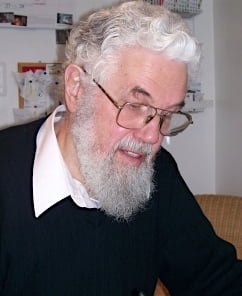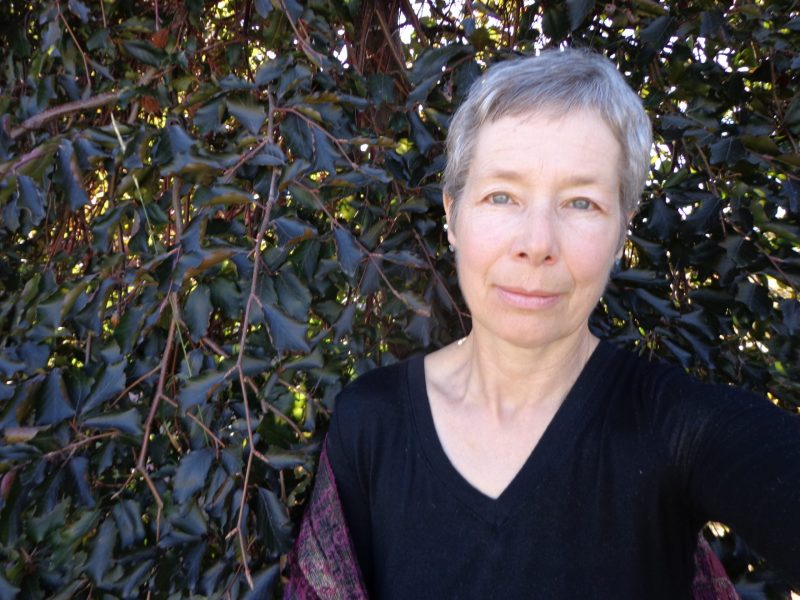#753 Pungency and plate glass
Gatecrasher
by Susan Buis
Picton, Ontario: Invisible Publishing, 2019
$17.95 / 9781988784267
Reviewed by Christopher Levenson
*
 We do not have to wait long with Susan Buis’s first volume, Gatecrasher, to realize that we are in the presence of a formidably original poetic talent. Take the first four lines of the first poem, “Arrowslit:”
We do not have to wait long with Susan Buis’s first volume, Gatecrasher, to realize that we are in the presence of a formidably original poetic talent. Take the first four lines of the first poem, “Arrowslit:”
Quarry the stuff of a curtain wall, quarry the crenellation.
and when a skirmish weathers, I’ll lob projectiles —
rakes and broomsticks over firebreak stubble
like dragon flies buzzing ponds they left as nymphs.
The unusual historical setting, the direct tone, the startling imagery and, most of all, the careful deploying of assonance and internal rhyme along with an overall alertness to the sounds of words — these immediately capture the reader’s attention.
Nor is this a flash in the pan: although there are recurring concerns, especially with climate change, animals, and ecology, what unites this book, far more than subject matter or theme, is the way it uses language and rhythm. Buis seems to relish short, often starkly declarative, sentences and the crunch of consonants in compact muscular lines. In “Grassland pointillism,” for instance, we read:
Plate glass patted down by foundling cats,
little mutant goons born under outbuildings
swatting at moths left a veil of eight-toed, mitts
up the pane. I see brassy flies have been at it too,
spattered the window with a thousand points of shit.
Deeper of field, buzzed metal hills roll, specked
with those Black Angus spared fall’s stockyard cull.

How much more briefly or powerfully could one possibly evoke this scene and these ideas? This is dense poetry where every phrase is honed for maximum tactile effect. Although Buis has spoken in an interview of Emily Dickinson’s influence, and one can certainly see this in her wit, I suspect from the aggressive way that she treats syntax that Gerard Manley Hopkins is also in the background. No less than is the case with Hopkins, Buis’s poetry not only deserves but demands to be read aloud. In any case, as is probably already apparent, most of these poems gain from a second, even a third, reading. This is not a matter of obscure references — admittedly once or twice she does go overboard with wordplay such as “vers sigh” (Versaille) or “the milty way” — and it would have been helpful for the book to have a few more notes, and a table of contents.

Rather it concerns the density of language, both syntactically and in terms of sound. Throughout Buis exhibits an overwhelming sense of texture so that perhaps even more than one’s mind’s eye, one’s mind’s finger is constantly arrested and drawn into a situation. Thus in the morning after the destruction wrought by a windy night, she comments: “Whiskeyjack/ shows what’s broken, though I already know,/ my annoyance static fur” (my italics). Again, in “Laid Up,” the poet, although sick, nevertheless has to feed the dog and water the nursery trees. She concludes: “Even through all this smoke, the glint / of a galvanized pail sharp as thirst.”
Many of these qualities converge in the brilliant title poem, whose subject is an invasive, albeit beautiful, weed. Here as elsewhere in this volume the poet shows herself to be aware of, even angry about, the inconsiderate fecundity of the natural world:
Unchecked
It’s a mass of flower fireworks — radiant
Catherine wheels and blue bursts —
a flourish that parches with its guzzle.
That last phrase, “parches with its guzzle,” typifies the way Buis is at ease with the paradoxical aspects of life and the natural world and so, accepting ambivalence, does not try to downplay or reconcile but is able to give equal weight to mixed feelings. Any reader who is not expecting simple sensuous lyricism but is prepared to grapple with coolly unsentimental, pungently opinionated, and supremely self-aware poetry will find much to admire. This is an impressively mature first book.
*

Born London, England, in 1934, Christopher Levenson came to Canada 1968 and taught English, Creative Writing, and Comparative Literature at Carleton University from 1968 to 1999. He has also lived and worked in the Netherlands, Germany, Russia, and India. He has written twelve books of poetry, the most recent of which is A Tattered Coat Upon a Stick (Quattro Books, 2017). He co-founded Arc magazine in 1978, was its editor for the first ten years, and was for five years Series Editor of the Harbinger imprint of Carleton University Press, which published exclusively first books of poetry. He has reviewed widely, mostly poetry and South Asian literature in English, in the UK and Canada. With his wife, Oonagh Berry, Christopher moved to Vancouver in 2007 where he helped re-start and run the Dead Poets Reading Series.
*
The Ormsby Review. More Books. More Reviews. More Often.
Publisher and Editor: Richard Mackie
The Ormsby Review is a journal service for serious coverage of B.C. books and authors, hosted by Simon Fraser University. The Advisory Board consists of Jean Barman, Robin Fisher, Cole Harris, Wade Davis, Hugh Johnston, Patricia Roy, David Stouck, and Graeme Wynn. Scholarly Patron: SFU Graduate Liberal Studies. Honorary Patron: Yosef Wosk. Provincial Government Patron since September 2018: Creative BC
“Only connect.” – E.M. Forster
